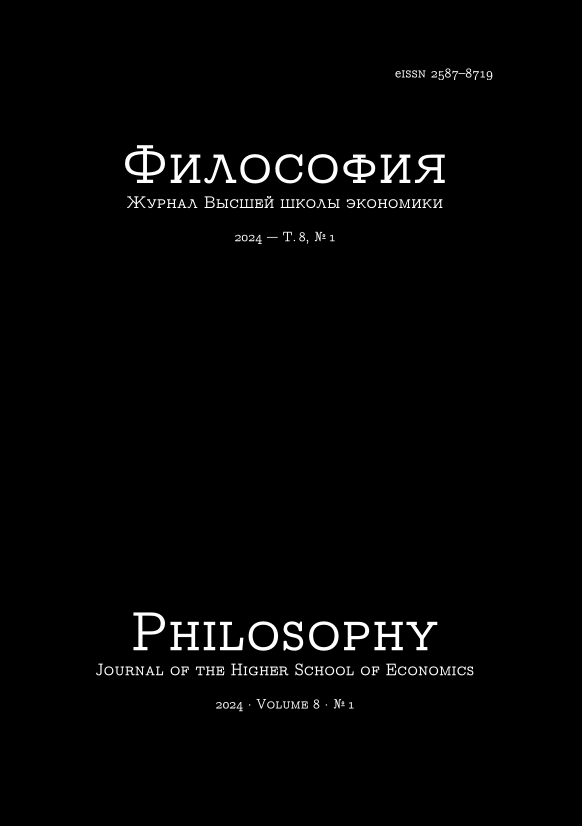Modern Discourse on the Definition of the Concept of “Suicide”
Abstract
The article discusses the conceptual framework of the concept of “suicide” and provides its philosophical definition. Continental philosophy has traditionally focused on the axiological and practical-ethical characteristics of suicide. The purpose of the article is to define and comprehend this phenomenon in the course of a polemic with the modern analytical philosophy of suicide. The article contests the assertion that it is impossible to give an unambiguous definition of suicide, in the process of its strict separation from other kinds of death; the definition of suicide is descriptive, not evaluative, that is, it does not postulate a priori morality or immorality of the act itself, its rationality or irrationality, justification or unjustification. The definition under discussion produces important logical implications and characteristics of suicide that may conflict with our original and culturally conditioned intuitions on the phenomenon. A clear theoretical definition can have a profound impact on further social thought, social policy, medicine, and legislation in the field of suicidology.
Downloads
Copyright (c) 2024 Philosophy Journal of the Higher School of Economics

This work is licensed under a Creative Commons Attribution-NonCommercial 4.0 International License.






